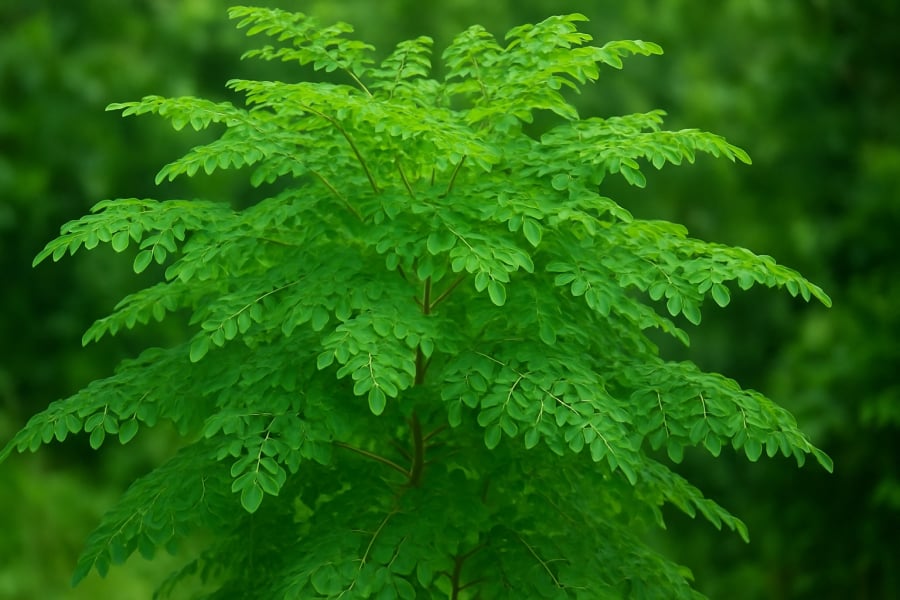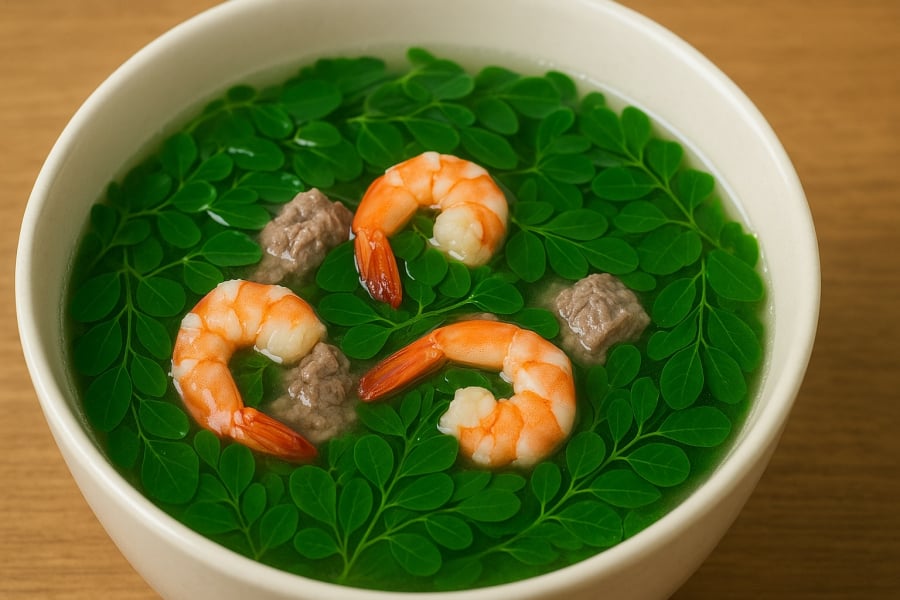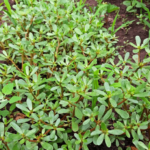Have you heard of the vegetable often referred to as “poor man’s beef”? This humble plant is known as Moringa, and it is a familiar sight in the tropics, especially in Vietnam. Moringa is not just any ordinary vegetable; it is packed with nutrients and offers a plethora of science-backed health benefits. Let’s delve into the fascinating world of this superfood.
Moringa: Nature’s Bounty
Moringa, often growing wild in tropical regions, has become an integral part of the daily diet in Vietnam. This unassuming leafy green is a powerhouse of nutrition, boasting high levels of iron, vitamins, and plant-based protein. But what sets it apart is its exceptionally high vitamin C content, surpassing that of citrus fruits like oranges and lemons. According to Dr. Laura Purdy, an American healthcare expert, “Moringa is an excellent source of vitamins, minerals, and antioxidants, contributing to overall health and well-being.”
In Vietnam, Moringa leaves are commonly used in cooking, added to soups or stir-fries, or brewed into a refreshing tea. Given its exceptional nutritional profile, it is considered a nourishing meal for all, especially those from lower-income backgrounds.

Science-Backed Health Benefits
Blood Sugar Control and Diabetes Management
Elevated blood sugar levels are a primary concern for diabetics and can lead to severe health complications. According to a small study published in the International Journal of Food and Nutrition Sciences, incorporating just 50g of Moringa leaves into one’s diet can result in a 21% reduction in blood sugar levels. This effect is attributed to the presence of chlorogenic acid and isothiocyanates, compounds that play a crucial role in effective blood glucose management. Additionally, the zinc found in Moringa leaves also contributes to diabetes prevention by helping maintain stable blood sugar levels.
Anti-Aging and Skin Health
Moringa leaves are rich in polyphenols, vitamin A, and vitamin C, all of which possess potent antioxidant properties that benefit the skin. Connie Pretula, a Canadian nutritionist, affirms, “The vitamins A and C in Moringa help to slow down the aging process by reducing oxidative stress in the body.” Furthermore, according to the US National Library of Medicine, 100g of fresh Moringa leaves provide a remarkable 120mg of vitamin C, far surpassing the amount found in oranges (53.2mg/100g). This makes Moringa an excellent choice for women seeking to maintain youthful and radiant skin.
Liver Protection and Digestive Support
Moringa’s high polyphenol content promotes liver health by stimulating the repair of damaged liver tissue. Additionally, its natural antibacterial and anti-inflammatory properties provide digestive support. Sipping on a cup of Moringa tea daily can help alleviate issues like bloating, stomach discomfort, and gastric ulcers. For those facing digestive challenges, Moringa offers a safe and effective natural remedy.

Other Notable Benefits
The advantages of Moringa don’t stop there. It also helps maintain healthy blood pressure levels, reduces cholesterol, and boosts the immune system. A 2020 study revealed that consuming Moringa just two hours before a blood pressure reading resulted in a significant decrease in both systolic and diastolic numbers, which is excellent for preventing cardiovascular events like strokes or heart attacks.
Moringa also contributes to bone health, providing ample calcium and magnesium. For those with gut issues, Moringa offers a natural and safe solution. With its diverse range of benefits, Moringa truly deserves the title of “nature’s miracle tree.”
Precautions and Recommendations
While Moringa offers an array of health advantages, it is essential to consume it in moderation. Experts advise against exceeding 70g of Moringa leaves per day to prevent excessive iron intake. Additionally, pregnant women should refrain from consuming Moringa, as it may induce uterine contractions and potentially lead to miscarriage.
Conclusion
Moringa is more than just a vegetable; it is nature’s gift, offering countless health benefits. Incorporate it into your daily menu to reap its wonderful rewards. If you haven’t tried Moringa yet, now is the perfect time to discover its magic.





































